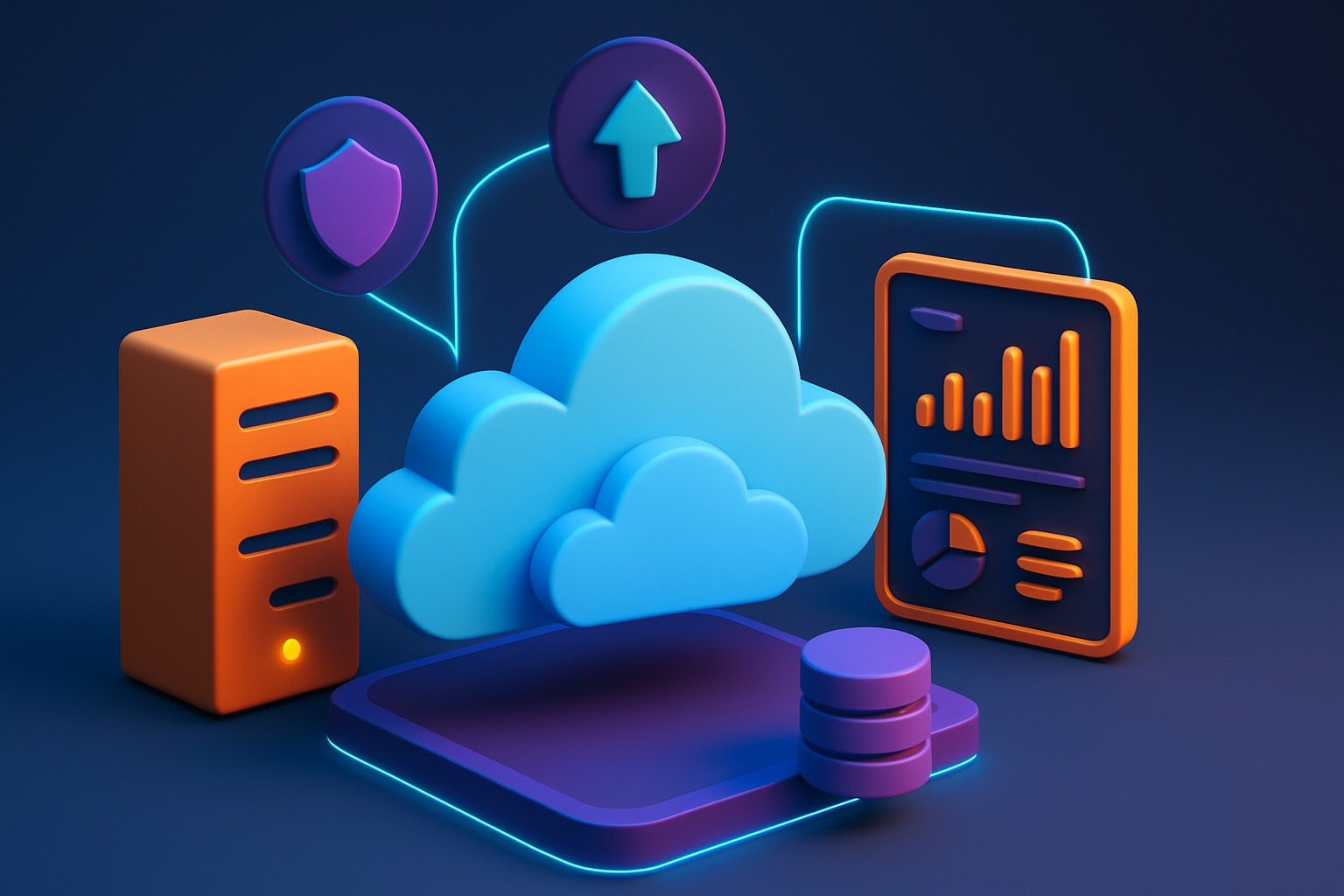In 2025, the cloud computing landscape is dominated by three major players: Amazon Web Services (AWS), Microsoft Azure, and Google Cloud Platform (GCP). Each offers a unique set of features, pricing models, and services tailored to various business needs. This comprehensive comparison will help you understand the strengths and differences of these cloud giants to make an informed decision for your organization.
Market Share and Growth
As of Q1 2025, the global cloud market shares are:
- AWS: 29%
- Microsoft Azure: 22%
- Google Cloud: 12%
While AWS maintains the lead, Azure and Google Cloud have shown significant growth, with Google Cloud experiencing a 28% year-over-year increase in revenue.
Core Services Comparison
Compute Services
- AWS: Offers Elastic Compute Cloud (EC2) for scalable virtual servers.
- Azure: Provides Virtual Machines (VMs) with deep integration into Microsoft services.
- Google Cloud: Features Compute Engine with live migration capabilities for high availability.
Storage Solutions
- AWS: Simple Storage Service (S3) for object storage.
- Azure: Blob Storage optimized for unstructured data.
- Google Cloud: Cloud Storage with multi-regional availability.
Networking
- AWS: Virtual Private Cloud (VPC) for isolated network environments.
- Azure: Virtual Network (VNet) with hybrid connectivity options.
- Google Cloud: Virtual Private Cloud with global load balancing.
Artificial Intelligence and Machine Learning
- AWS: Provides SageMaker for building, training, and deploying ML models.
- Azure: Offers Azure Machine Learning with automated ML capabilities.
- Google Cloud: Features Vertex AI for unified ML model management.
Pricing Models
All three providers offer pay-as-you-go pricing, but there are nuances:
- AWS: Offers Reserved Instances for cost savings on long-term commitments.
- Azure: Provides Hybrid Benefit for customers with existing on-premises licenses.
- Google Cloud: Features Sustained Use Discounts for consistent usage over time .
Security and Compliance
- AWS: Comprehensive security tools and compliance certifications.
- Azure: Integrated security with Microsoft Defender and extensive compliance offerings.
- Google Cloud: Emphasizes zero-trust security model and robust data encryption.
Integration and Ecosystem
AWS: Broad ecosystem with extensive third-party integrations.
Azure: Seamless integration with Microsoft products like Office 365 and Dynamics 365.
Google Cloud: Strong support for open-source technologies and Kubernetes.
Choosing the Right Provider
- AWS: Ideal for businesses seeking a mature, feature-rich platform with a vast service portfolio.
- Azure: Best for organizations already invested in Microsoft technologies.
- Google Cloud: Suitable for companies focusing on data analytics, AI/ML, and open-source development.
Conclusion
Selecting the right cloud service provider depends on your organization’s specific needs, existing infrastructure, and long-term goals. By understanding the strengths and offerings of AWS, Azure, and Google Cloud, you can make an informed decision that aligns with your business objectives.




